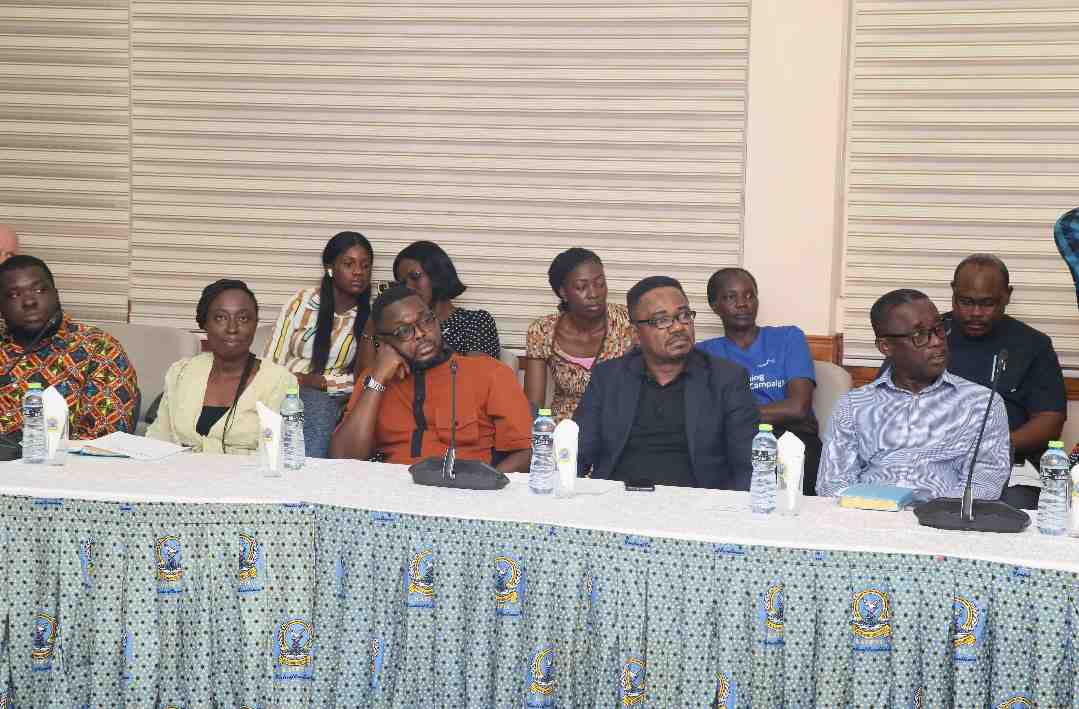The Kofi Annan International Peacekeeping Training Centre (KAIPTC) has held its maiden Editors’ Forum, with the intention to promote the Centre’s activities within Ghana, and establishing the need for the media to make the Centre the go-to place on African peace and security issues.
The event which assembled top print, television, radio and online media editors from Accra for the dialogue, took place at the Conference Room 2 of the KAIPTC, Teshie, Accra, on Thursday 22 February 2024, with the participation of the Commandant, KAIPTC – Major General (Maj Gen) Richard Addo Gyane, his Executive Management Committee, and Middle Management Staff of the Centre.
In his introductory speech, Maj Gen RA Gyane said despite the huge name that KAIPTC has in the Sub-Region and among its institutional partners, it appears that back home in Ghana, the case is different.

He continued to say that it is for that reason that KAIPTC deemed it necessary to change the narrative and showcase its programs and activities to Ghanaians, through the mass media, so they can take advantage of the Centre’s proximity, to enhance their knowledge about peace and security on the African continent.
Giving a background of the Centre to the media, the Commandant said KAIPTC was established by the Ghana Armed Forces in 1998, to share its rich experience in peacekeeping with others in the Sub-Region; operationalized its first course in 2004, and now has a mandate to deliver internationally recognized capacity-building training programs, academic programs and research in peace and security.
KAIPTC aims to contribute to the consolidation of peace in Africa by enhancing the capabilities of civilians, military and police professionals, to manage conflicts effectively and contribute to peace support operations on the Continent.

It has trained over 31,000 individuals from various African countries and beyond, equipping them with the necessary skills to engage in peacekeeping operations, mediation processes and conflict resolution, with its Alumni serving in various leadership positions in their countries, and playing pivotal roles in maintaining peace and security.
KAIPTC has also been actively involved in research and policy development, and committed to generating knowledge, providing evidence-based policies to inform African governments and international organizations, in their efforts to achieve sustainable peace.
KAIPTC will soon expand the reach of its courses and programs by opening up external campuses in Kumasi (Ghana), Lagos (Nigeria) and other locations, and plans to organise First Degree courses in Security Studies, to equip young Graduates with the tools to contribute to peace and security discourse, right from their own backyards.
It has a Memorandum of Understanding with Ghana’s University of Development Studies (UDS), to jointly roll out a Peace and Security program in March 2024, to be followed by a Diploma and, eventually, a Masters Program on the UDS campus.

The Centre has adopted a new strategic plan spanning from 2024 to 2028, which guides its operations for the next five years, with a focus covering the following thematic areas:
1) Peace Operations; 2) Stabilization and Peacebuilding; 3) Governance, Leadership and Security; 4) Technology and Peace; 5) Women, Youth, Peace and Security; 6) Climate and Environmental Security; 7) Capacity building for Bilateral/Multilateral Institutions and Regional Organizations.
KAIPTC’s 20th anniversary celebration will be a year-long of activities that will be launched at the end of February, to highlight its achievements, dedication and endurance in the pursuit of peace, and will be heralded by the well-acclaimed Kofi Annan Peace and Security (KAPS) Forum to be held at the Centre, from 28-29 February 2024.

KAPS 2024, under the theme: Migration and Societal Resilience in a Multipolar World Order: Addressing Conflict and Building Peace in Africa, will have the President of Ghana as the Chief Guest, amongst many esteemed dignitaries from across the globe.
There followed questions and suggestions from the media on a wide range of issues ranging from persons who portray themselves as ‘Security Experts’, through security in Ghana, to certification and academic programs.
By Kofi Ampeah-Woode
